Pinto Beans: Nutrition, Benefits, And Risks
Reduce the risk of cancer and coronary heart issues with these nutritious beans.
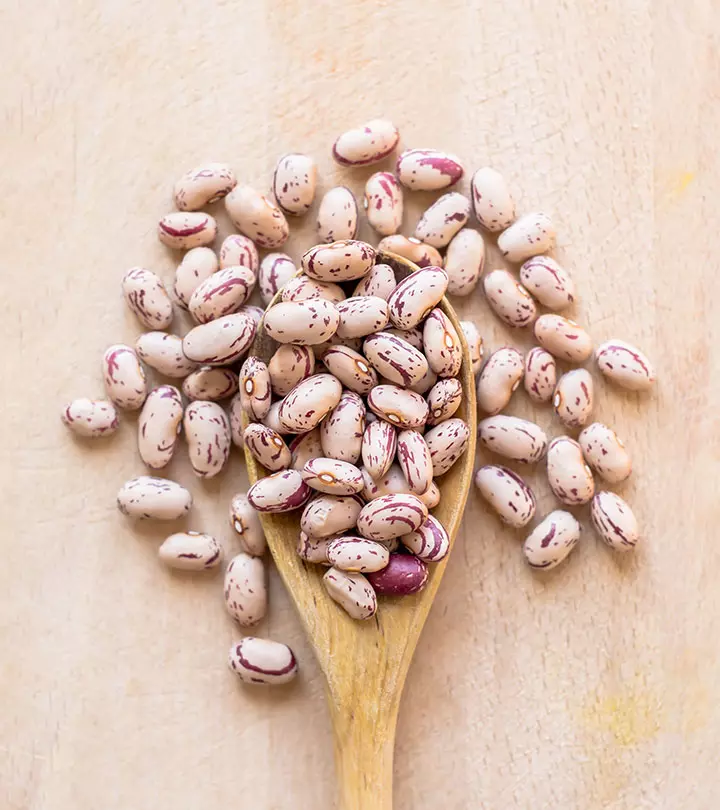
Image: Shutterstock
Beans are an indispensable part of the diet in many countries. One of the most popular beans is the pinto bean, which offers a variety of health benefits. The nutritional benefits of pinto beans are due to their high levels of proteins, carbohydrates, dietary fibers, vitamins, minerals, phytochemicalsi Bioactive nutrients found naturally in plants that may provide desirable health benefits and reduce the risk of major chronic diseases , and other micronutrients. Pinto beans also have a low-fat content.
This article discusses the nutritional profile of pinto beans and their potential side effects. Take a look.
 Know Your Ingredient: Pinto Bean
Know Your Ingredient: Pinto BeanWhat Is It?
A type of bean that is largely consumed in Southwestern United States and Northern Mexico.
What Are Its Benefits?
It may help combat obesity, reduce the risk of diabetes, and coronary heart diseases.
Who Can Consume It?
It is considered safe for all.
How Often?
Daily.
Caution
May cause allergic reactions in some people. Overconsumption may lead to flatulence and abdominal pain.
In This Article
What Are Pinto Beans?
Pinto beans are among the most consumed bean varieties. They are native to Mexico and are scientifically called Phaseolus vulgaris. They are reddish or beige and have a unique earthy smell with a nutty flavor. They are used whole or mashed and are popular in Mexican cuisine. They take about 90to 150 days to completely turn dry. They can also be consumed as green snap beans.
 Trivia
TriviaIncluding these legumes in a healthy diet is a great way for vegetarians and vegans to ensure they are getting enough protein and fiber for optimal digestion. Let us look at the pinto beans nutrition facts in the next section.
Key Takeaways
- Pinto beans are the most consumed bean variety with exceptional nutritional benefits.
- They may reduce the risk of coronary heart disease, lower blood glucose levels, and help prevent tumor formation.
- However, excessive consumption may lead to flatulence, abdominal pain, and allergies.
Pinto Beans Nutrition Facts
100 grams of raw pinto beans contain the following nutrients:
| Energy | 143 kcal |
|---|---|
| Protein | 9.01g |
| Carbohydrates | 26.2g |
| Starch | 15.2g |
| Water | 63g |
| Ash | 1.17g |
| Potassium | 436mg |
| Fiber | 9g |
| Phosphorus | 147 mg |
| Magnesium | 50 mg |
Note: Values are sourced from USDA
Combining pinto beans’ nutritional profile with white beans’ benefits creates a diverse and nutritious diet rich in essential vitamins and minerals. To explore various white beans’ benefits, consider incorporating them into your meals in different ways, such as in soups, salads, or as a side dish. These beans can help regulate blood sugar levels and aid in weight loss when part of a balanced diet.
Let’s see how practical it is to add pinto beans to your diet in terms of money.
 Trivia
TriviaCost-Effectiveness Of Pinto Beans
Pinto beans are a great option for anyone trying to keep a balanced diet on a budget because they are a reasonably priced source of nutrients. In addition to being high in protein, fiber, and vital vitamins, they are also reasonably priced, adaptable, and suitable for a range of diet plans. You may have a nutrient-dense diet without going over budget by including pinto beans in your diet.
Health Benefits Of Pinto Beans
1. May Reduce The Risk Of Coronary Heart Disease

A sedentary lifestyle and an unhealthy diet are among the major factors associated with coronary heart disease risk. Studies suggest that consuming pinto beans regularly may reduce the risk. These beans reduce the levels of serum total cholesterol and low-density lipoprotein (1). Beans may also improve lipid profiles associated with cardiovascular disease (2). Thus, these beans can help boost heart health.
2. May Promote Satiety

Pinto beans are low in fat and are usually preferred for weight loss. Studies show that their high fiber content may promote satiety and help reduce obesity (3). However, these were only short-term results. Detailed studies are warranted to further understand the benefit of pinto beans in the long run.
3. May Help In Glycemic Control

Beans are high in fiber and have slowly digestible carbohydrates. They may help promote long-term glycemic control. They may also lower fasting blood glucose levels (4). Additionally, the intake of fiber is directly related to a reduced risk of diabetes (5). Thus, these beans may help regulate blood sugar levels. Consult your doctor if you have diabetes and want to include pinto beans in your diet.
4. May Lower The Risk Of Mortality
Dietary fiber is associated with many health benefits (6). Studies show that dietary fiber may significantly reduce mortality associated with cardiovascular disease (CVD), coronary heart disease, diabetes, cancer, digestive disease, and infectious and inflammatory diseases. A direct impact of dietary fiber on CVD is also observed (7).
5. May Reduce The Risk Of Cancer
Studies suggest that pinto beans may reduce colorectal cancer risk. The large number of bioactive compounds in dry beans could prevent cancer. Their bioactive constituents may delay or prevent tumor formation. Dry beans could also reduce advanced colorectal adenomasi A harmless tumor of the colon and rectum and is a precursor lesion of the colorectal adenocarcinoma (colon cancer). (8). However, more studies are warranted in this regard.
To enjoy some of the aforementioned health benefits, check out a delicious and easy recipe in the next section.
Easy Pinto Beans Recipe
Spicy Pinto Beans
Ingredients
- 2 cups of dried pinto beans
- 6 cups of water
- 1 onion, chopped
- 2 garlic cloves, minced
- 1 jalapeño, seeded and minced
- 1 teaspoon of cumin
- 1 teaspoon of chili powder
- Salt and pepper to taste
How To Prepare
- Soak pinto beans in water overnight.
- Drain the water and rinse them.
- Place the beans in a large pot and add 6 cups of water.
- Bring them to a boil and cover the pot. Then, let the beans simmer over a low flame for 1.5 – 2 hours or until they are tender and set aside.
- In a separate pan, sauté onion, garlic, and jalapeño until soft.
- Add the sautéed mixture, along with cumin and chili powder, to the cooked beans.
- Season with salt and pepper. Simmer for an additional 15 minutes and serve hot.
Amanda, a blogger, shares her recipes and ways of adding pinto beans to the diet. She writes, “Pintos are so good in burritos, tacos, enchiladas, blended into a soup”. Further, she adds, “With my pintos this weekend, I’ll first eat them probably my favorite way: just eaten in a bowl, straight from the pot, soupy and steamy with sliced fresh chile, chopped white onion, avocado, cilantro and radish (i).”
Despite an array of health benefits and delicious taste, consuming pinto beans in excess may also cause adverse effects. Keep reading.
Adverse Effects
1. May Increase Flatulence

Bean consumption may increase flatulence, bloating, and stool changes in some. However, there is a variation in this response. Increased flatulence and intestinal gas were observed in some people when dietary fiber intake was high. Oligosaccharides — water-soluble carbohydrates — are difficult to digest. They get converted into carbon dioxide, sulfur, and hydrogen and move out in the form of flatus (9).
2. May Affect Bone
Studies show that excess intake of high-phytate foods may affect bone health. Pinto beans contain phytates that can interfere with the body’s ability to absorb calcium. Excess phytates in food can also lead to iron and zinc deficiencies (10). However, you can reduce the phytate concentration in pinto beans by soaking them in water before cooking or eating.
3. May Cause Abdominal Pain
Anecdotal evidence suggests that pinto beans may induce abdominal pain or aggravate existing pain. It is also associated with cramps and nausea. These effects may be caused due to the high protein content of the beans. However, more research is needed in this regard.
Allergies

Studies suggest that patients allergic to beans show reactions like asthma, dyspneai A medical term that refers to shortness of breath is often described as an intense tightening in the chest and difficulty breathing. , chest tightness, and tachycardiai A medical term that refers to rapid heartbeats. In this condition, the heart beats more than 100 times per minute. . The reaction occurs majorly after ingestion. The chances of allergy while handling (cleaning or cooking) these beans are fewer (11). Consult your doctor if you develop any of these symptoms.
Infographic: 5 Reasons To Add Pinto Beans To Your Diet
Pinto beans are commonly used in South American cuisine due to their high fiber, protein, and potassium content. They may regulate blood sugar levels and aid in weight loss among other benefits. Check out this infographic to learn how these delicious beans improve your health and well-being.

Illustration: StyleCraze Design Team
Pinto beans are the most consumed bean variety with an impressive nutritional breakdown. They have a nutty flavor and contain phytochemicals, dietary fiber, proteins, and micronutrients. These nutrients are responsible for many benefits of pinto beans. The intake of pinto beans may reduce the risk of coronary heart disease, promote satiety, help in glycemic control, lower mortality, and reduce cancer risk. However, their excess consumption may lead to several side effects. They may increase flatulence, affect bones, and cause abdominal pain, and allergies. Hence, consume them in moderation to enjoy their benefits. On a health note, you may also explore black beans benefits as these beans are also excellent for health, providing excellent support for heart health and improving digestion.
Frequently Asked Questions
Is pinto healthier than black beans?
From the nutritional standpoint, based on the macronutrienti Essential nutrients like carbohydrates, fats, and proteins that the body needs to generate energy and maintain bodily functions. (carbs, fat, and protein) content, black beans are healthier than pinto beans (12), (13).
Are canned pinto beans good for you?
Canned pinto beans are generally considered safe to consume. They are nutritious and are the best alternative to dried beans.
Are pinto beans a Superfood?
While pinto beans are highly nutritious and a valuable addition to the diet, they are not classified as a superfood as they do not offer exceptional nutritional benefits like superfoods such as blueberries and chia seeds do.
Is it good to eat pinto beans every day?
While it is safe to consume pinto beans on a regular basis, it is advised to include variety in your diet to ensure proper nutrition.
Do pinto beans clean your system?
Pinto beans are high in fiber which promotes healthy growth of gut bacteria and good digestive health. However, they are not detox food and may not help much with cleaning your system.
Are pinto beans good for your immune system?
Pinto beans are a healthy addition to the diet as they offer several vitamins and minerals, such as vitamin A, vitamin C, zinc, and selenium. These nutrients may help promote a healthy immune system.
Illustration: Pinto Beans: Nutrition, Benefits, And Risks
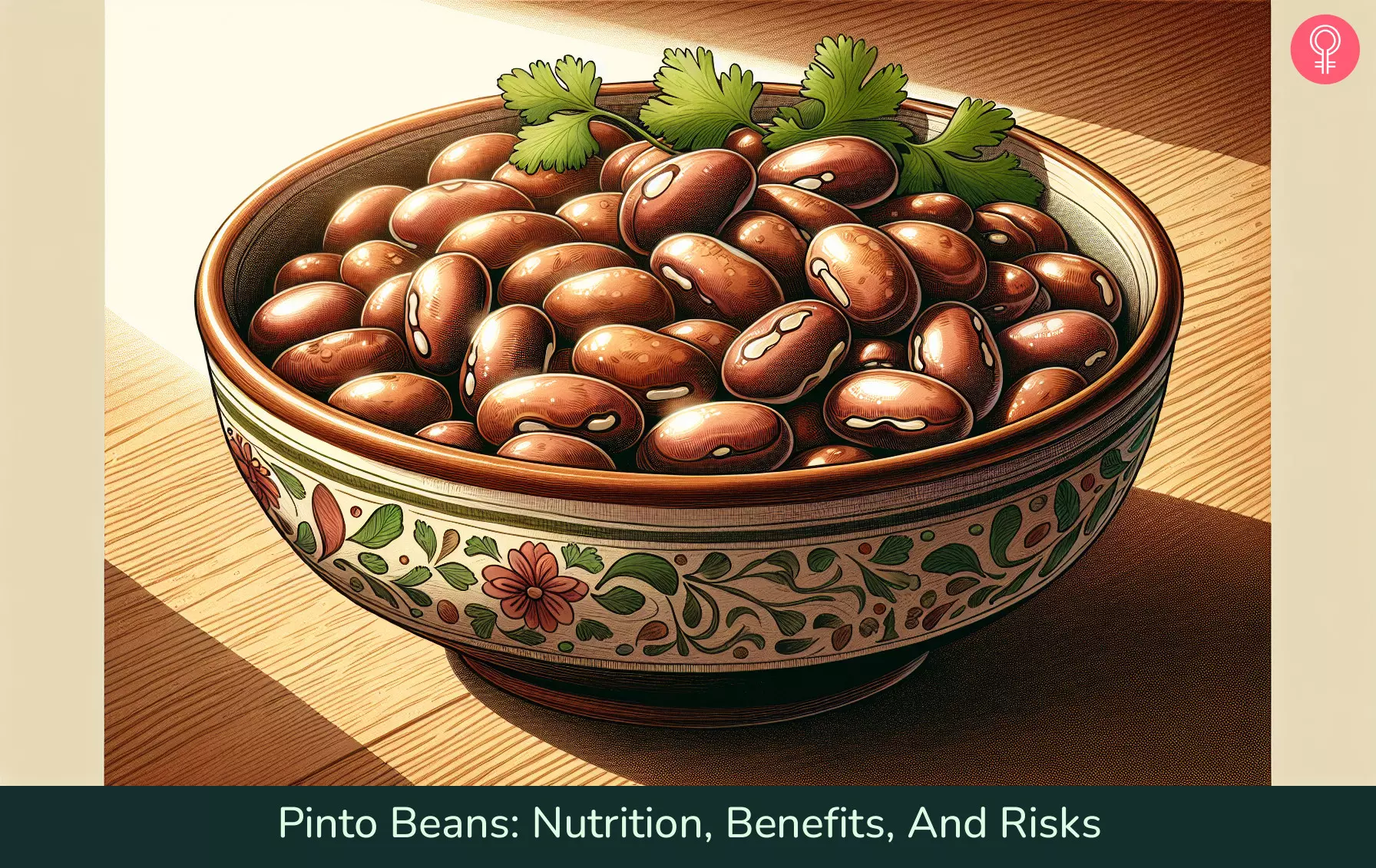
Image: Stable Diffusion/StyleCraze Design Team
Discover the amazing health benefits of pinto beans. Check out this video to learn how they can help improve your heart health, reduce inflammation, and more.
Personal Experience: Source
StyleCraze's articles are interwoven with authentic personal narratives that provide depth and resonance to our content. Below are the sources of the personal accounts referenced in this article.
i. Pintohttps://mamaeatsplants.wordpress.com/tag/pinto/
References
Articles on StyleCraze are backed by verified information from peer-reviewed and academic research papers, reputed organizations, research institutions, and medical associations to ensure accuracy and relevance. Read our editorial policy to learn more.
- Pinto bean consumption reduces biomarkers for heart disease risk
https://pubmed.ncbi.nlm.nih.gov/17634169/ - Pinto bean consumption changes SCFA profiles in fecal fermentations bacterial populations of the lower bowel and lipid profiles in the blood of humans
https://pubmed.ncbi.nlm.nih.gov/17951475/ - Pulse Consumption, Satiety, and Weight Management
https://www.ncbi.nlm.nih.gov/labs/pmc/articles/PMC3042778/ - Effect of non-oil-seed pulses on glycaemic control: a systematic review and meta-analysis of randomised controlled experimental trials in people with and without diabetes
https://pubmed.ncbi.nlm.nih.gov/19526214/ - Dietary Fiber Intake and Type 2 Diabetes Mellitus: An Umbrella Review of Meta-analyses
https://www.ncbi.nlm.nih.gov/labs/pmc/articles/PMC5883628/ - The Health Benefits of Dietary Fibre
https://www.ncbi.nlm.nih.gov/labs/pmc/articles/PMC7589116/ - Dietary Fiber Intake and Mortality from All Causes, Cardiovascular Disease, Cancer, Infectious Diseases and Others: A Meta-Analysis of 42 Prospective Cohort Studies with 1,752,848 Participants
https://najms.com/index.php/najms/article/view/51 - High Dry Bean Intake and Reduced Risk of Advanced Colorectal Adenoma Recurrence among Participants in the Polyp Prevention Trial
https://www.ncbi.nlm.nih.gov/labs/pmc/articles/PMC1713264/ - Perceptions of flatulence from bean consumption among adults in 3 feeding studies
https://www.ncbi.nlm.nih.gov/labs/pmc/articles/PMC3228670/ - Excess dietary protein can adversely affect bone
https://pubmed.ncbi.nlm.nih.gov/9614169/ - Viciafaba Hypersensitivity and ASA Intolerance in a Farmer: A Case Report
https://www.hindawi.com/journals/ja/2011/191787/ - Beans, Dry, Pinto (0% moisture)
https://fdc.nal.usda.gov/fdc-app.html#/food-details/747445/nutrients - Beans, Dry, Black (0% moisture)
https://fdc.nal.usda.gov/fdc-app.html#/food-details/747444/nutrients
Read full bio of Dr Archana Batra
Read full bio of Aparna Mallampalli
Read full bio of Ravi Teja Tadimalla
Read full bio of Payal Karnik







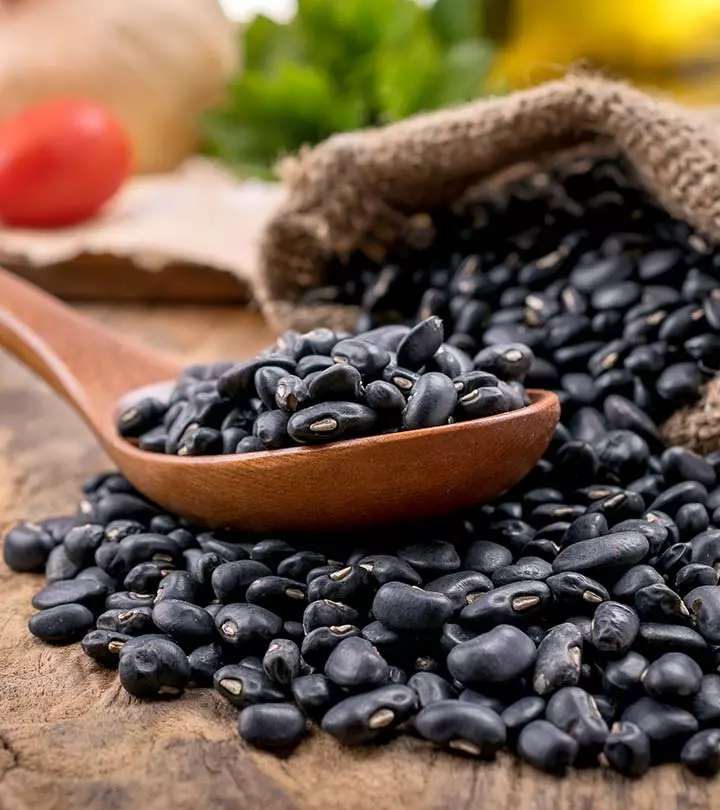
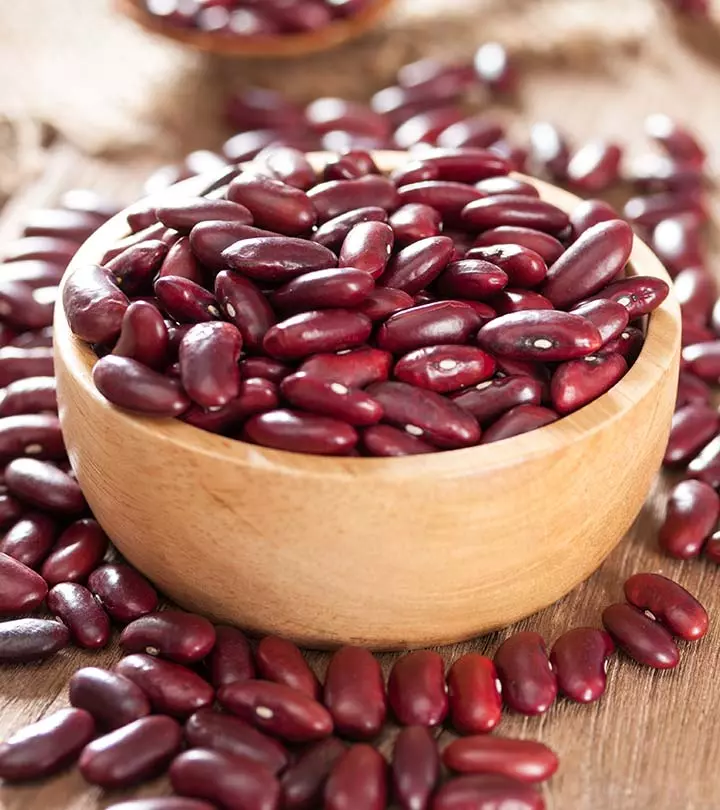
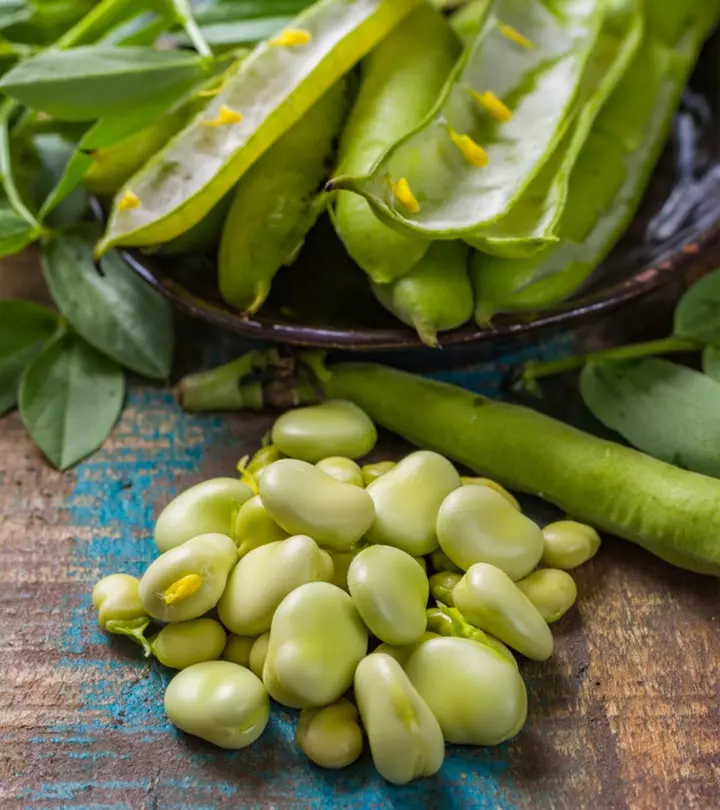
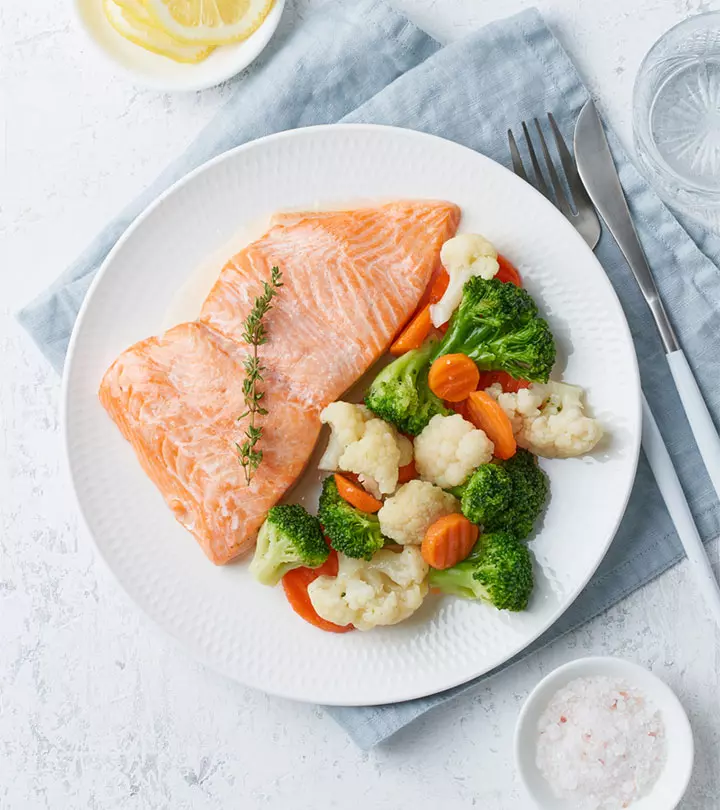

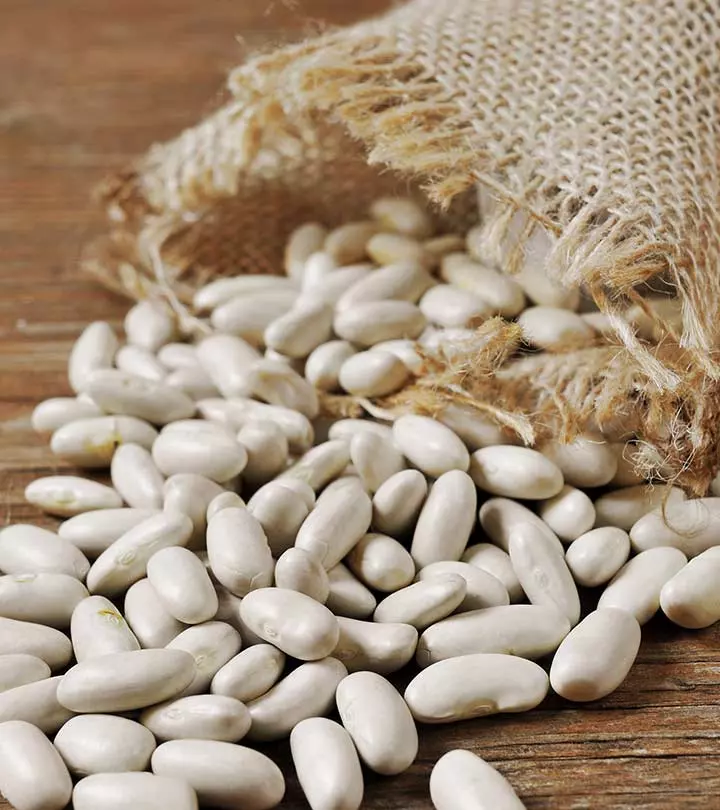
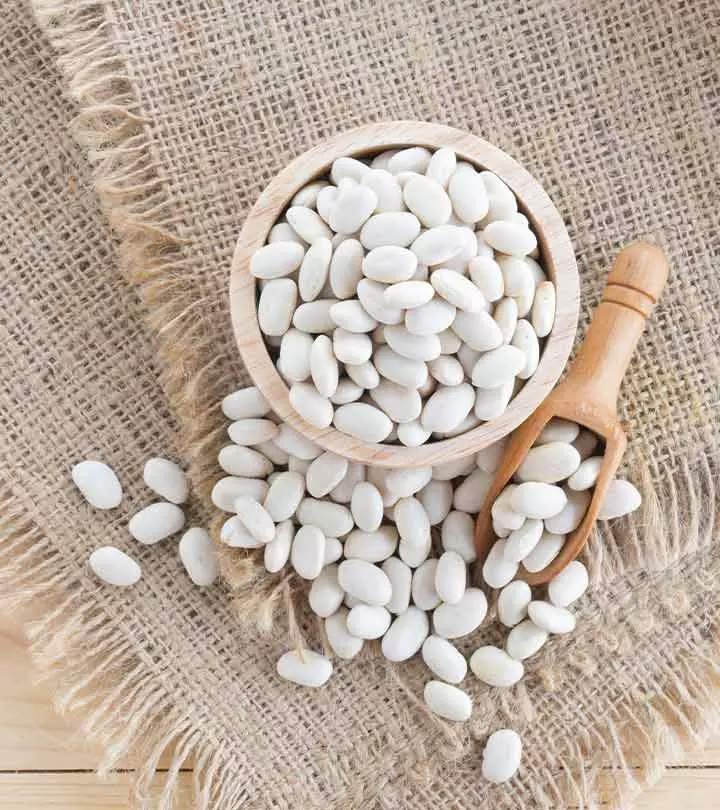
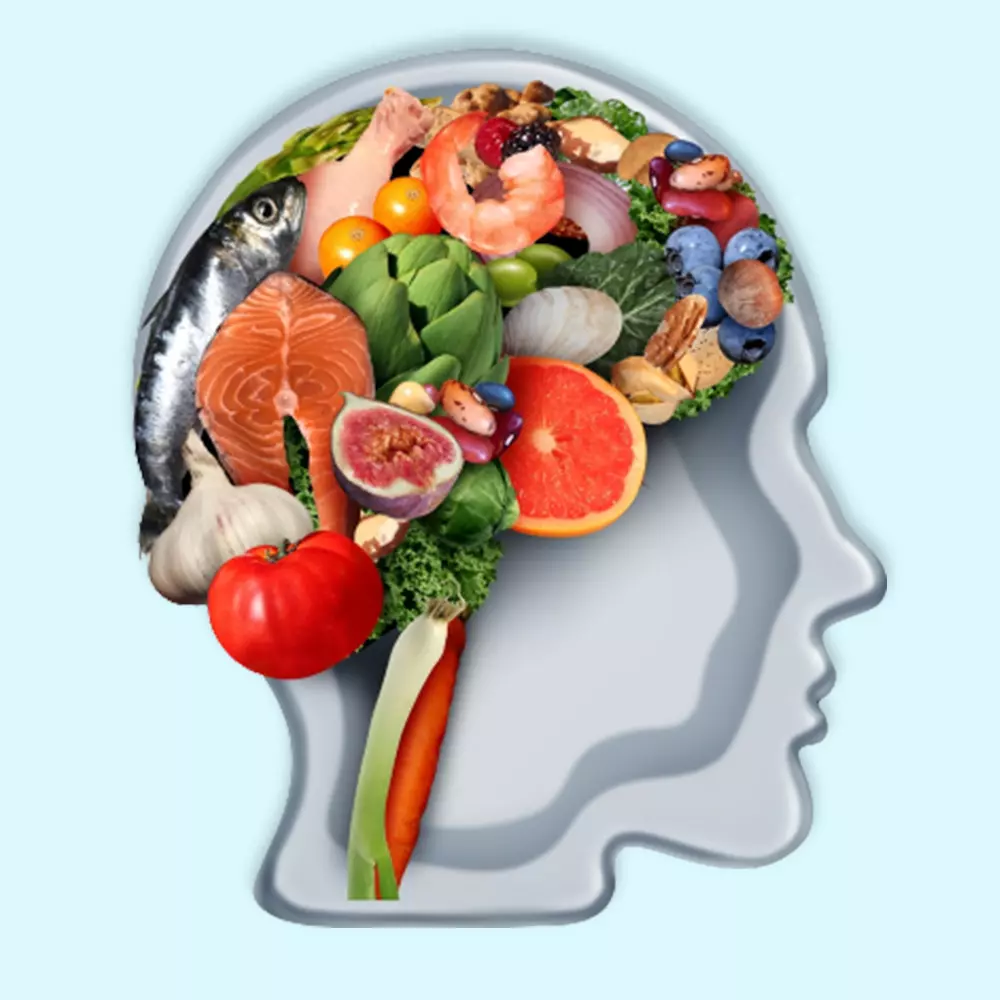
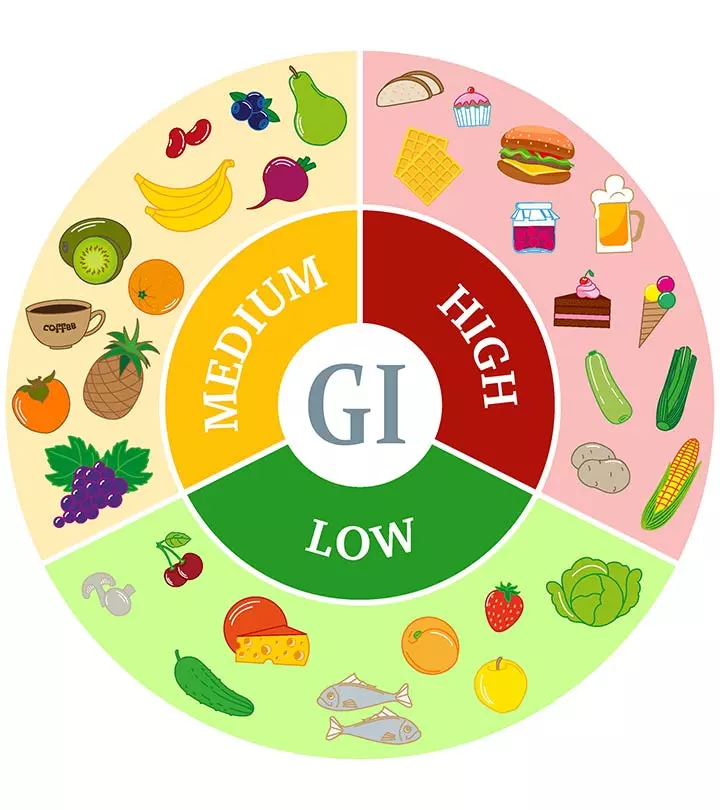


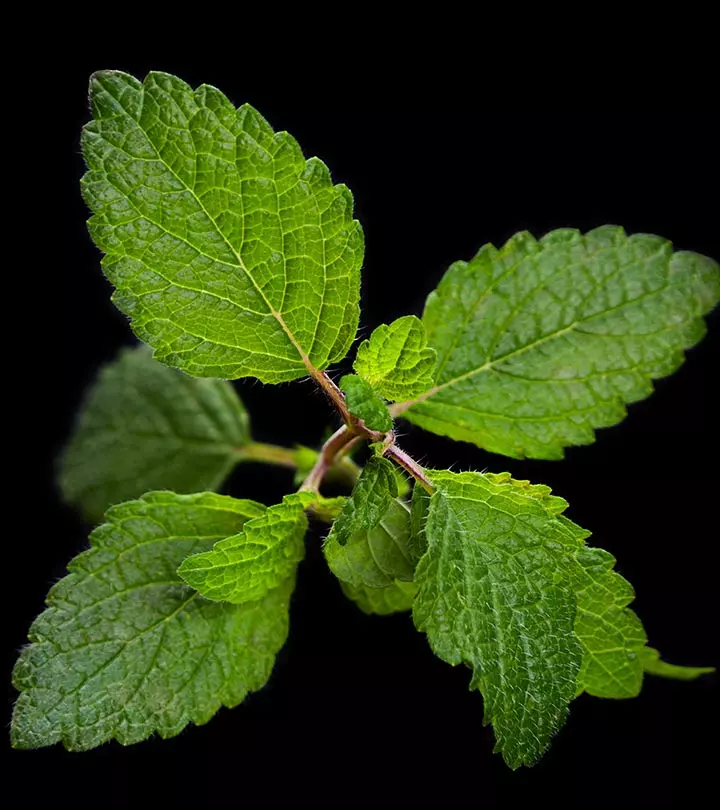
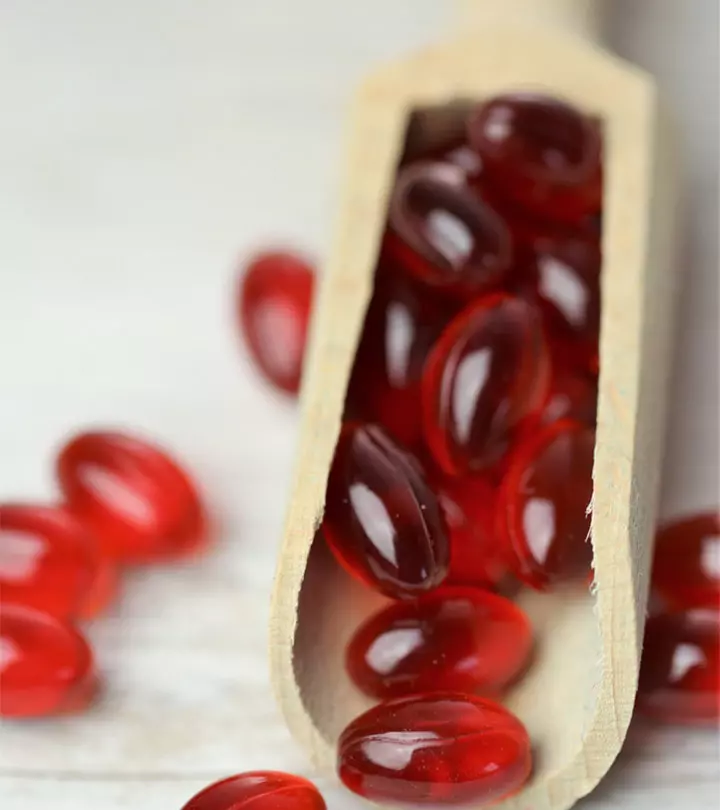
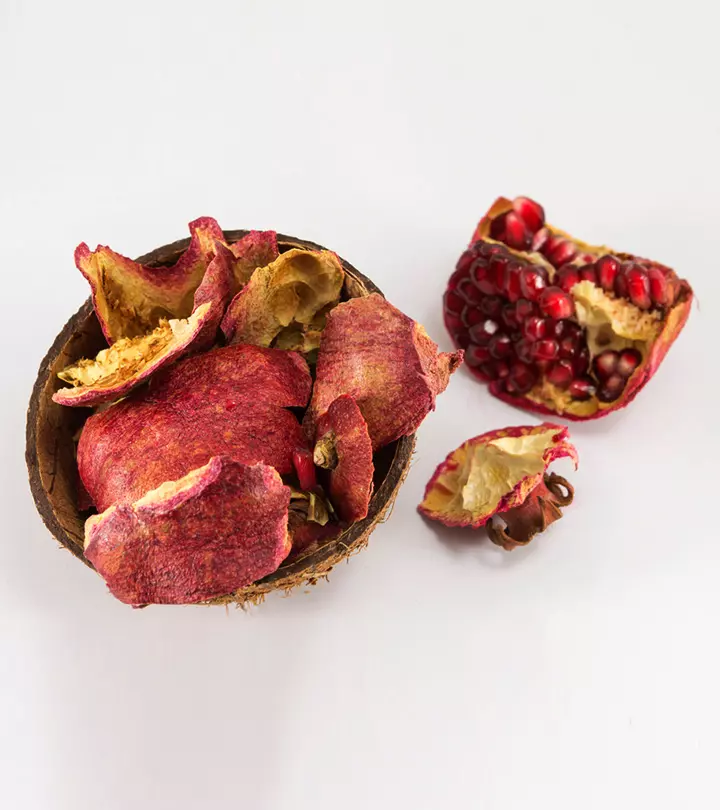



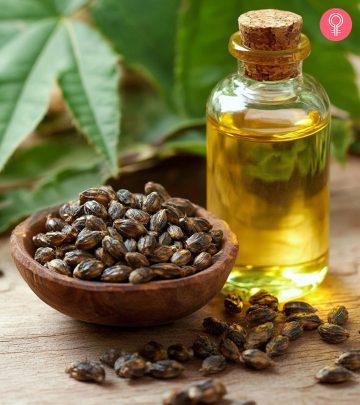
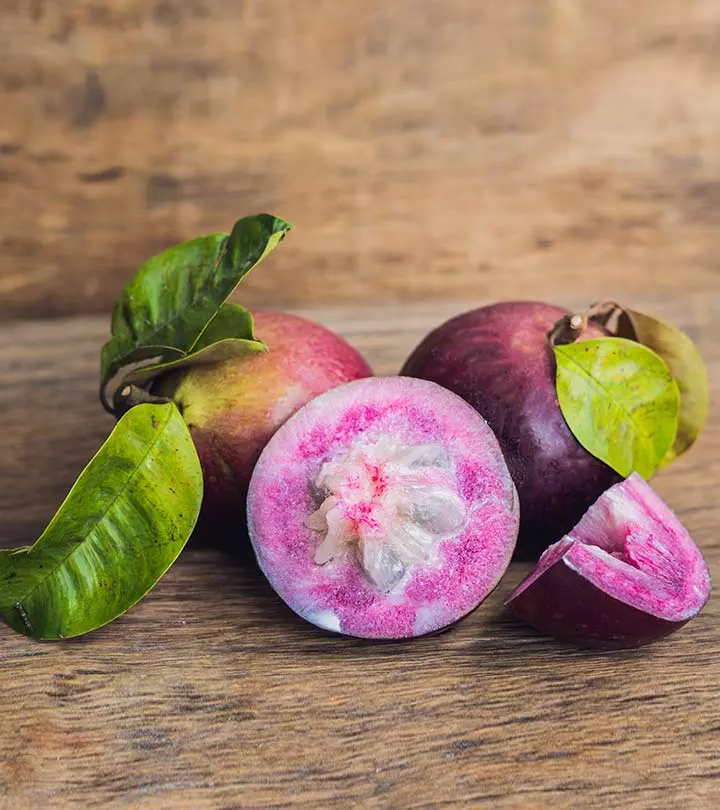
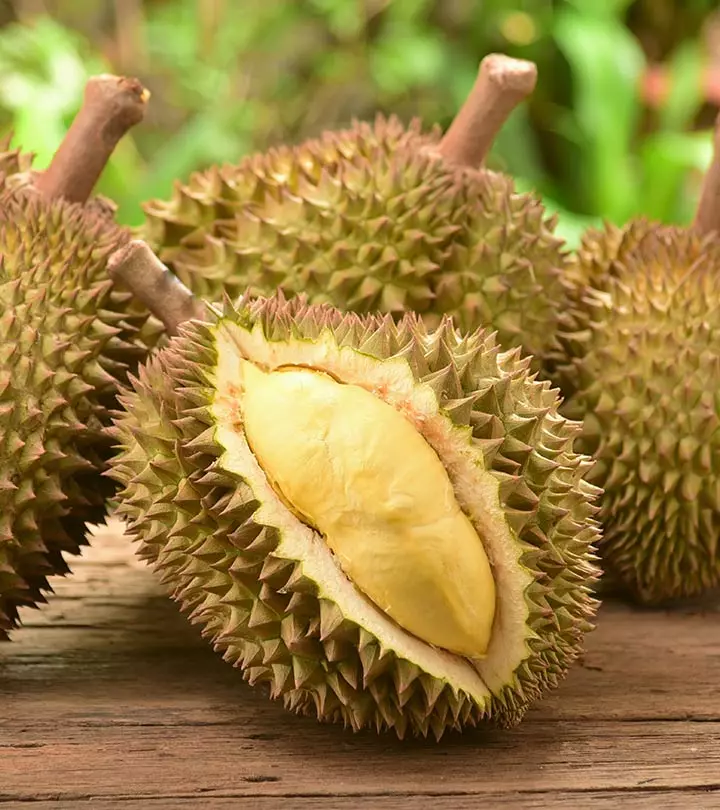

Community Experiences
Join the conversation and become a part of our empowering community! Share your stories, experiences, and insights to connect with other beauty, lifestyle, and health enthusiasts.